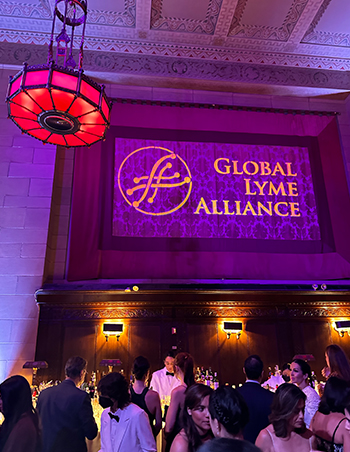
Are air fresheners toxic to humans?
Date: 01/12/2024
We’ve all heard that certain air fresheners contain chemicals that are toxic to humans, but I want to know: are any air fresheners really safe?
All of us like to have a nice smelling home, and we each enjoy our own ways of achieving that. Some burn candles or incense, some use essential oil diffusers, some enjoy spritzy air fresheners, and others prefer a simple open window or air purification system. That said, a few of these methods are more beneficial to our overall health than others–which I’m sure you were already aware. That’s why in this article, I want to take a second to explore the world of scented air, and get a good snapshot of what the conversation looks like in the science world when it comes to the air fresheners we use to keep our homes free of yucky odors (which I learned are called malodors).
I have to admit though, I am going into this with a bit of a negative bias against most air fresheners myself. I am one of the many many US citizens who would prefer a scent-free environment where possible, and when I consider the ways in which topical chemicals can have irritating effects on our skin, I have to wonder whether the scents we put into our air (natural or no) can have similarly irritating effects that would, by that nature, activate our body’s defense mechanisms.
So let’s take a look! Let’s see what’s going on out there, and look into the different types of air fresheners, the research that’s been done looking into their health effects when released indoor air environments, and any other interesting tid-bits we can find when it comes to connections between typical air fresheners and our health.
What kind of air fresheners are there?
When I started my research into this topic, I didn’t want to limit myself to just car fresheners. I wanted to cast a wide net and see what I could find on things like aerosol air fresheners, solid air fresheners, plug-ins, and even natural alternatives like essential oil diffusers. Turns out there are even more types of air freshener than I thought, including:
- Oils
- Scented candles
- Incense
- Fabric sprays
- Hanging disks
- Beads
- Potpourri
- Deodorizers
- Odor control products
- Odor neutralizers
As such, air fresheners include any kind of product that (in an active or passive form) instantly, intermittently, or continuously releases fragrance into the air to alter the aromatics of an otherwise unpleasant (or even clean) air environment.
What’s so bad about air fresheners?
Don’t get me wrong, I love a great smelling room, and enjoy the light of a slowly burning scented candle in the room. It can eliminate odors, and improves my overall mood through aroma therapy. Anything to reduce stress, right? Yet it could also be true that air fresheners are putting our bodies under stress through adverse health effects. Indeed, most research studies have proven that air fresheners on the market emit quite the variety of chemicals into the air, the most popular of which (across several sources) are things like VOCs (volatile organic compounds, which are chemicals that ‘vaporize’ at room temperature like ethanol, formaldehyde, and benzene) as well as semi-VOCs like phthalates.
We are already aware through research into plastics and other skin-contacting materials like our clothes that these kinds of chemicals do not benefit our health, so why would we draw the line when it comes to the phenomenon of indoor air pollution? In my opinion, we shouldn’t.
That’s why it is pretty concerning that almost 72.8% of US citizens use air fresheners at least once a week, while more than 50% of people are exposed to these fragrances second-hand. It doesn’t matter what type of device you use either, as the compounds in the fragrance itself are seen by some researchers as more important to air composition than the freshener method itself.
Indeed, researchers and air freshener companies alike (the Little Tree air fresheners provide their ingredients list online) have shown that both synthetic and natural fragranced products can emit VOCs into our air. What’s really interesting is that these air fresheners have also been shown to interact with existing molecules in our environment (oxidants) to generate secondary pollutants including free radicals. Again, these particulates don’t have a great track record when it comes to human health outcomes, so their presence and proliferation in our air environments is definitely concerning.
As with much of the research we have access to, the correlations between air fresheners and actual health detriments is pretty hard to study. There are so many different kinds of air fresheners, and so much time between exposure and onset, that it is difficult to make a significant causal connection between the two. Still, the research that has been done does seem to point to an overall negative relationship between air quality and air fresheners. So, even if the direct connection to our health still needs more research, the studies of air quality and behavior when exposed to scented air that do exist are already telling us so much.
Here’s what I found so far:
The relationship between air fresheners and indoor air quality
Like I said, air fresheners have emissions. And although they are not exactly like the emissions you would get from a gas or diesel vehicle, their ‘volatile’ nature as VOCs do occupy a similar space: combustion. And since these tiny molecules combust at room temperature, they become volatile when exposed to our indoor environments. As such, they reduce indoor air quality through additions of a chemical mixture into the air. And since fragrance products do not clean the air (even if they say they do), the natural result is an increase in indoor pollution.
So what is in these air fresheners that escapes into our air? If you’re really interested in a fuller list, check out this comprehensive analysis on indoor air fresheners, but for obvious reasons the more familiar chemical emissions jumped out at me, such as ethanol, limonene, linalool, and acetone, benzene. This study even found that an electric air freshener “generated indoor air concentrations of formaldehyde…represent[ing] 40% of the World Health Organisation recommended limit of exposure”. Considering the relationship between formaldehyde exposure and human health in general, I definitely don’t want to be breathing those in, whether first or second-hand…particularly since this study mentions that all tested air fresheners emitted at least one of these compounds, with one fourth of those compounds being listed as potentially toxic or hazardous to humans under federal legislation in the United States!
And while you might be thinking that you’re safe from these chemical emissions because you only buy ‘natural’ products, know that this study of air freshener hazards tested 14 so-called unscented, all-natural products and found that 12 emitted phthalates of between 1 and 7307 parts per million. That’s why ‘unscented’ products can be so misleading, since air fresheners are said (in this study) to emit odorless, petrochemical solvents that behave similarly to their scented counterparts when released indoors!
I should mention here that our indoor air quality has a direct impact on outdoor air quality in the form of photochemical smog, much like how our water has an effect on our major water sources. In fact, here in California in 1997, this study estimated that air fresheners emitted 7.5 tonnes of VOCs per day (or 230 mg per day, per person). If nothing else, the fact that the air quality effects from air fresheners is measurable to that extent provides evidence for my belief that air fresheners should be eliminated where possible in favor of better ventilation.
Are air fresheners toxic to humans?
I suppose the short answer is that, yes, most air fresheners would be considered toxic to humans if exposed over a long period of time. The silver lining is that some animal studies do show that clearer air quality can counter those effects and result in better health quite quickly. To summarize then, exposure is not good, and we should avoid it, but if we’ve been exposed, removing these ‘offending’ emissions will have positive health effects.
Of course I have to mention that I am not a doctor and that so much more research is needed, but here is an interesting quick list of some of the adverse health effects that have been correlated to some degree with air freshener exposure, according to this analysis of current studies:
- Migraine headaches
- Asthma attacks
- Breathing difficulties
- Respiratory difficulties
- Earache
- Mucosal symptoms
- Dermatitis
…among other health effects.
And while many researchers are quick to point out that most of these symptoms are deeply qualitative, and could merely be a placebo effect, I would argue that our bodies know best, and that we should trust the intuition that shows up as a physical symptom. Not to mention, there are other studies which explore the relationship between air freshener chemicals and their potentially adverse effects on our cardiovascular, immune, and endocrine systems, particularly acetaldehyde, which is considered a carcinogen in the US. Just look at this one, which found that cognitive function was diminished following human exposure to essential oil emissions from a diffuser. Participants ultimately had shortened reaction times, worse response control, and more impulsive decision making.
Is anyone paying attention to potentially toxic air fresheners?
Thankfully, this is not an issue that is going unignored, either by the judicial or health community. There are projects around the world that are dedicated to ensuring a deeper analysis of scent substances and standards, such as the Emissions, Exposure Patterns and Health Effects of Consumer Products commission in the EU. There are policies around the world that support a fragrance-free environment at work and in public spaces, like this one from the CDC. Fragrances are therefore regulated by a few government agencies, including the FDA and the Consumer Product Safety Commission.
On the other hand, the EPA has said the number of reported adverse effects from exposures is low when considering how much people actually use air fresheners in the US, and as of 2007, were not willing to invest in further study of that relationship. I also think there could also be a lot more restrictions or legislation around certain fragrances, particularly around reporting what is actually in the air fresheners we use…yet another reason why it might be best that we just avoid using these kinds of fresheners as much as possible. This study actually found that between 70 and 90% of ingredients in these products go completely unlisted, or hide behind labels that don’t exactly describe what’s in the formulation at all.
In fact, here’s a quote from that analysis I talked about earlier which really drives this point home:
“Ingredients listed were typically general or neutral sounding ones, such as “fragrance,” “essential oils,” “water,” “organic perfume,” or “quality control ingredients.” All air fresheners tested (e.g., sprays, gels, solids, disks, oils) emitted chemicals classified as toxic or hazardous under US federal laws. However, fewer than 1% of these potentially hazardous chemicals were listed on any product label or material safety data sheet.”
That’s right! Even if you’re buying a product that lists ‘essential oil’ on its list, the fragrance composition of that product is still likely to produce hazardous VOCs in your indoor air environment–which means that us ‘all-natural’ folk have to be just as wary when we’re using air refreshing products in our homes.
What can we do to avoid negative toxins from air fresheners?
I do find it terribly ironic that we are constantly trying to improve our indoor air environment with products that can actually make the air quality indoors worse. And in a world where fresh air is becoming a resource, what can we actually do to improve the quality of our air indoors and reduce potential adverse health effects from bad air quality inside?
Well, considering the research I’ve come across, for the most part we just have to be careful when it comes to use and exposure. It seems that no air fresheners at all are the better option, though there are a few studies which point back to the well-being aspect as being a worthwhile reason to enjoy the subtle benefits of a scented environment. There are also some studies which are looking into the potentially health-positive relationship between essential oils and their antifungal or anti-mould properties when released into the air–though this one shows that the effect is only viable for about 30 to 60 minutes following diffusion, and only for certain oils. And while it would be impossible to exist in an entirely scent-free world (so I don’t recommend getting too obsessive about smells and scents), it is still possible to commit to a few practices to help reduce fragrance exposure in your air:
- Request that taxis, carpools, or ride-shares remove fresheners before pick-up
- Don’t be fooled by unscented labels or all-natural product labels, since they can emit the same amount of hazardous compounds
- Avoid other scented products in the home to avoid VOC reactions from air fresheners (this study shows the compounding effect of multiple scented products in our air)
- Remove existing air fresheners from your home and indoor work environments (this study showed that VOCs were reduced by 96% in just two weeks after removing air fresheners from an indoor space)
- Invest in air purifiers and air filtration systems
- If you do use a diffuser, only use purified water. This study found more particulate matter in the measured environment when tap water was used vs deionized water.
- If you are prone to migraine, coughing, or shortness of breath, avoid candles and incense altogether, as they have been loosely correlated to these symptoms.
I’m sure this list could go on though, which makes me super curious to hear about how you make sure that your home is fragrance free, and what you do to keep your indoor space smelling fresh without risking your indoor air quality. I would also love to see any other studies I haven’t included here which explore the relationship between the toxins that manufacturers include in fragranced products and human health–so feel free to send them along through Instagram.
Finally, as someone who is fairly health conscious, this is just one of the many steps I’m taking to prioritize my own health and wellness. By making sure my food, water, and air are as clean as can be, I’m leveling the playing field for my body to neutralize other negative toxins I may take in. Suffering from a chronic health condition as I do, these little steps have had a huge impact on my daily functioning, and I am privileged to be able to take the time to focus on getting better and better.
Just remember, as we all journey toward better health, not everything has to happen overnight! Removing air fresheners is just one way that you can improve your odds of achieving chronic good health–so don’t mind me as I go double-check my rooms to remove any scented products that might be impacting my air!
With all my love,

Lena
SUBSCRIBE
Get the latest updates, sneak peeks and more.
 Back To All Posts
Back To All Posts Previous Post
Previous Post

